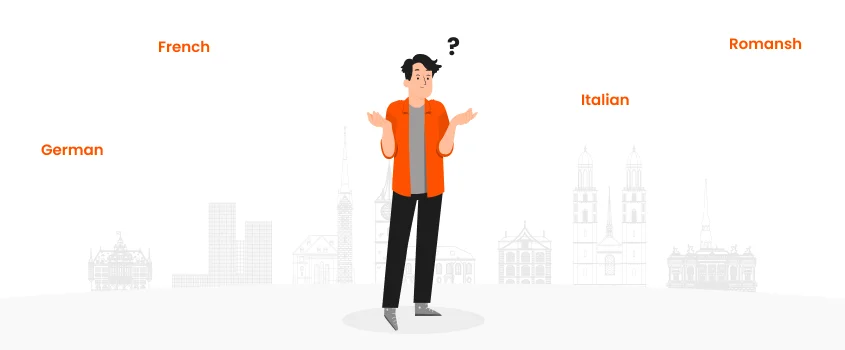2025 Offer Request a Quote Today and Grab a $50 Coupon for Free!
Did you know that a Romance language which is the fifth most spoken language in the world and a language of almost 273 million people has many ways to say “thank you”
The Portuguese language, originating from Galician-Portuguese, is one of the major languages of the world and the third most spoken language in the Western Hemisphere. It is also the most spoken language in the Southern Hemisphere.
The phrase “thank you” may be easy and straightforward to say in the English language, but there are approximately 15 different ways to say thank you in the Portuguese language. We take a look at “how to say thank you in Portuguese”.
Showing appreciation to others when they do us a favor, especially in a foreign country, is very important. Although we can show our appreciation by our gestures and by saying thank you in our own language, thanking people in their native tongue will be even better.
Here are all the ways you can say thank you in Portuguese:
One of the simplest and easiest ways to say thank you in Portuguese is Obrigado. However, you need to change the ending according to your gender. Men say “Obrigado” while women say “Obrigado”.
The early beginners of the Portuguese language might easily get confused between the two words. It is important to note that the decision to choose Obrigado or Obrigada depends on your gender, instead of the gender of the person you are addressing.
This is similar to saying “much obliged” in English–you are the one who is obliged, not the other person.
The plural forms of Obrigada and Obrigado are not used in the sense of saying thank you. If you want to say thank you on behalf of a group, you will have to use multiple words such as “ te agredecemos”.
The phrase “thanks” is said in a different way than Obrigada in the Portuguese language. It is uttered as “brigado, viu?” The word “viu” is derived from ouviu which means “do you hear?”.
Although this seems a bit strange thing to say after thanking you, it is commonly spoken this way in the Portuguese language.
In Brazil, it is very common to end your sentences with “viu?”. The question mark after viu? Is added deliberately to make the sound of the word rise at the end. In addition, the people residing in northeastern Brazil say obrigado, visse?, which holds the same meaning.
In the case when a simple “thank you” is not enough, you might want to use “many thanks” in Portuguese. For saying that, you need to say “Muito Obrigado”. The word muito means “many” or “much” in Portuguese.
However, like a few words in Portuguese, muito is not spoken like it is spelled. The “i” is pronounced nasally, like muinto.
If you want to thank someone profusely, you can use muitissimo Obrigado or obrigadissimo. Remember, these phrases are only meant to be used when someone has done a huge favor for you, such as gifting you a really big amount of money.
“Small” words are quite common in the Portuguese language. For instance, the word casa means “house”, while casinha means “little house”.
Note that the inho/inha suffix does not mean a literal difference in size. For example, the opposite of small words means big ones, like cesarao which means big house.
If someone calls you amigo, that does not mean that they are calling you fat, it is another way of saying, amigo, or good friend.
Here comes the words brigadao and brigadinho/ brigadinha. These words are “big” and “small” forms of the word Obrigado and are used in a friendly context. So, if you are really thankful, you will say “brigade, amigo!” or “thanks friend”.
To thank someone for something or some favor, you should use the word por. Note that por becomes “pelo” or “pela” when it is followed by “the”. Here are some examples:
One very formal word that is rarely used in speech is Grato or Grata. This is an adjective meaning “grateful” or “thankful”. Just like Obrigada/Obrigado, its usage depends on your gender.
This kind of formal word is not often used in daily speech. It is much like saying “i am obliged” and is often witnessed in corporate communications or to sign off a formal letter.
The word “Graca” means “grace”, implying a sense of “gratitude”. It can also be used to mean “thanks”, especially in the sense of giving thanks to a specific person or thing.
The most common use of the word gracias is in gracias a Deus, meaning “thanks to God”. Other examples include:
One interesting thing about Obrigado is that in certain situations, it means a “no”. For example, if you invite some friend over at your place and offer him a cigar, and he replies with Obrigado, it means he is not accepting the offer and does not want to smoke.
On the other hand, if you happen to accept the offer, you would simply say “sim, por favor”, meaning “yes please”.
Although the word Obrigada is most commonly used, there are other ways you can say thank you in Portuguese. These are both formal as well as informal ways of saying thank you:
Just like any other language, there are certain grammatical rules to follow when saying thank you in the Portuguese language. These are:
Since it is an adjective, the word Obrigado is used to refer to the speaker. If the speaker is male, he should use the word “Obrigado”. Females will use the word “Obrigada” in place of Obrigado.
In case you are speaking on behalf of a group or more than one person, you will use the plural Obrigado.
However, according to the gender rules, if there is a single male in the group, you should refer to them as Obrigado. Use the term brigades is the group you are mentioning is made entirely of women.
Remember, when you use Obrigado in a sentence, you should follow prepositions. Here is a list of common prepositions you are likely to use:
Used when combining Obrigado with a verb
This means “thank you for coming”
This means thank you for helping me
When a noun follows obrigada, the prepositions pelo/ pela are used. Examples are obrigado pelo brigadeiro–meaning “thank you for the brigadeiro” and obrigado pela ajuda– meaning “thank you for the help”.
Although Obrigado is used commonly to say thank you in Portuguese, there are certain words that can be used to say thank you in any situation:
These general terms are neither formal nor entirely informal. This is why they can be used in most situations and contexts. Note that the same gender, plural, and prepositions rules still apply here.
Now that you have a good idea of how to say thank you, you should have an idea of how to respond by saying “you are welcome” in Portuguese.
The common way to say “you are welcome” is by saying de nada, derived from the Latin phrase “rem Snatam”, meaning “it’s nothing”.
This is similar to saying to the other person that you are under no obligation to return the favor to me. Other ways of saying “you are welcome” are: nao ha de que imagina”.
The Portuguese language is a rich and diversified language, with a huge Portuguese-speaking population in the world. Although it is true that the Portuguese language is officially one of the recognized languages of the European Union, its popularity continues to grow.
Many enthusiastic learners of the Portuguese language might want to know “how to say thank you in Portuguese”. There are many ways to say thank you in this language. All you need to do is to consider the context and keep the grammatical rules in mind, and you are all set to go!

If you have planned to drive for the first time, you will have to start with a learner’s permit. There
Read more
Bill of exchange is a way to communicate with others for resolving issues legally. It is a systematic way of
Read more
Making a will gives you an opportunity to declare the names of one or more persons; you want to manage
Read more
The number of worldwide Internet users already exceeded 3 billion people in January 2015, according to Satista dot com. And
Read more
A marriage certificate is a legal document that joins two people who want to live with each other, for the
Read more
A death certificate is a very essential document issued by a doctor, which certifies that the person is deceased. This
Read more
Romania is officially known as the Republic of Romania. It is located at the junction of Central-Eastern and South-Eastern Europe.
Read more
Switzerland is a landlocked country with a very interesting history. The culture and languages spoken in Switzerland are highly influenced
Read more
Many people really do not know what divorce is exactly. Divorce is the legal process of separating couples who have
Read more
If you have planned to drive for the first time, you will have to start with a learner’s permit. There
Read more
Bill of exchange is a way to communicate with others for resolving issues legally. It is a systematic way of
Read more
Making a will gives you an opportunity to declare the names of one or more persons; you want to manage
Read more
The number of worldwide Internet users already exceeded 3 billion people in January 2015, according to Satista dot com. And
Read more
A marriage certificate is a legal document that joins two people who want to live with each other, for the
Read more
A death certificate is a very essential document issued by a doctor, which certifies that the person is deceased. This
Read more

